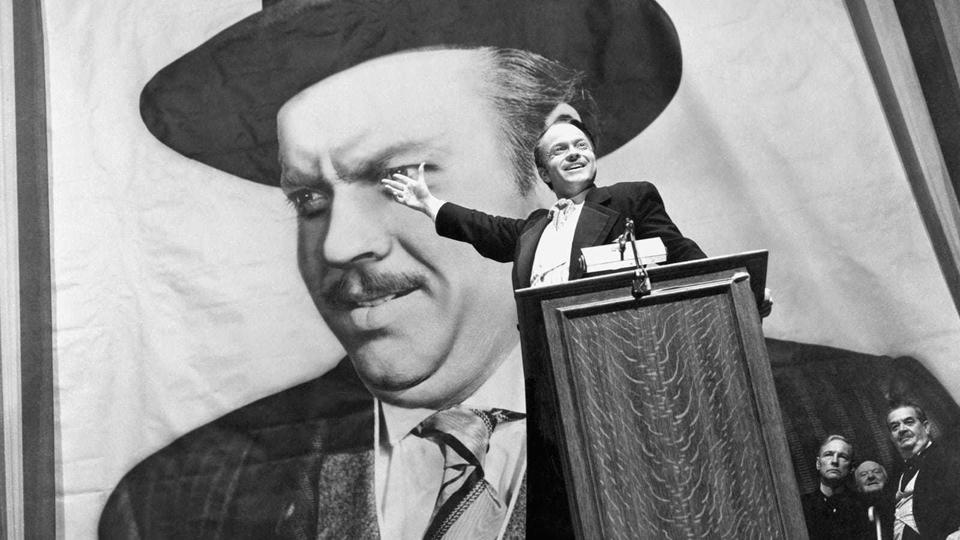A NOTE ON CITIZEN KANE
Why wasn’t Citizen Kane one of the featured movies at the wedding? Same reason Elvis was left off of the album cover for Sgt. Pepper’s Lonely Hearts Club Band.
“Elvis was too important and too far above the rest even to mention.” -Paul McCartney
Every movie you have seen since 1942 has Kane’s DNA in it. Every scene in Citizen Kane had something new – not because Welles wanted to innovate, but because it simply didn’t occur to him to not do those things. And that’s one of the many reasons it’s so great.
I’ll bet a day hasn’t gone by where I haven’t thought about that movie. Better writers have written tens of thousands of words over the decades about its power and influence. In fact, Roger Ebert himself had a lot to say about it. Give it a read.
Welles at his best was a magician and a trickster, both playful and heart-wrenchingly profound. He didn’t just buck against authority, he openly detested it. Kane hit too close to home for some very powerful people, and the rest of his career was dogged by that perceived transgression. His last film, The Other Side of the Wind, wasn’t even finished until more than 30 years after his death. Like Kane, it opens with the death of its protagonist. And like Kane, it’s a question with no single answer.
Another question with no single answer is “What is another Orson Welles movie you’d recommend?” I’ll keep it at three:
The aforementioned The Other Side of the Wind (which I recommend watching with its companion piece, the documentary “They’ll love me when I’m Dead”)
F For Fake – A confounding, nigh-impenetrable piece that is at once a documentary about trickery and a deft trick in itself.
Touch of Evil – Welles doing Noir. The opening shot alone is the stuff of legend.
